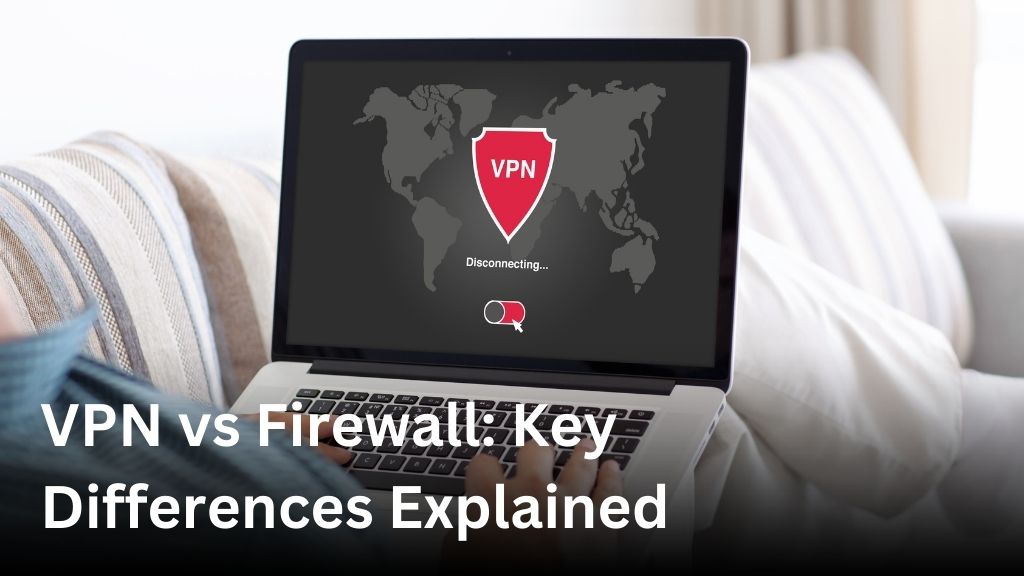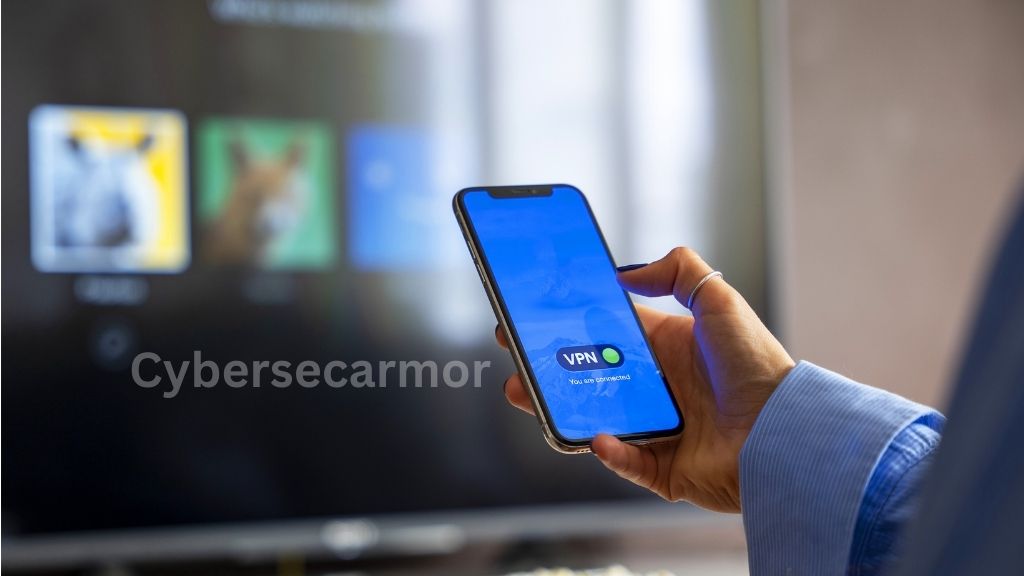VPN vs Firewall: Key Differences Explained

Welcome to our guide on the difference between VPNs and firewalls. In today’s digital age, ensuring the security of your online activities is of utmost importance. Both VPNs and firewalls play crucial roles in safeguarding your digital presence, but they serve different purposes. Understanding the distinctions between the two is essential for designing an effective security strategy.
A Virtual Private Network (VPN) provides a secure and private connection between your device and the internet. It encrypts your internet traffic, making it virtually impossible for anyone to intercept or eavesdrop on your data. On the other hand, a firewall acts as a barrier between your network and the internet, carefully monitoring incoming and outgoing traffic to prevent unauthorized access.
Throughout this article, we will dive deep into the functionalities of VPNs and firewalls, highlight their unique security features, and explore how they complement each other to provide comprehensive protection for your online activities. So, let’s get started and unravel the differences between VPNs and firewalls!
What is a VPN?

A VPN, or Virtual Private Network, is a technology that establishes a secure and encrypted connection over the internet. It allows users to access the internet privately and securely by creating a virtual tunnel between their device and the destination server. VPNs primarily aim to protect sensitive data transmitted over public networks, such as Wi-Fi hotspots.
When you connect to a VPN, your internet traffic is routed through the VPN server, masking your IP address and making it difficult for anyone to track your online activities. This added layer of security ensures that your data remains confidential and protected from cyber threats.
VPN vs Firewall: Security Comparison
While both VPNs and firewalls contribute to enhancing security, they serve different purposes. VPNs primarily focus on encrypting data and providing anonymity, whereas firewalls act as a barrier between your network and potential threats.
A firewall is a network security device that monitors incoming and outgoing network traffic and determines whether to allow or block specific requests based on predefined security rules. It acts as a gatekeeper, protecting your network from unauthorized access and malicious activities.
In comparison, a VPN secures your internet connection by encrypting your data and routing it through a private server. This not only ensures privacy but also protects against data interception and eavesdropping.
The Benefits of VPN and Firewall
When used together, VPNs and firewalls provide comprehensive security for your digital activities.
The benefits of using a VPN include:
- Secure and encrypted internet connection
- Protection against data interception and cyber threats
- Anonymity and privacy online
- Access to geo-restricted content
On the other hand, a firewall offers the following advantages:
- Preventing unauthorized access to your network
- Filtering and blocking potentially harmful network traffic
- Detecting and mitigating various types of attacks
- Monitoring network activity for suspicious behavior
| VPN | Firewall | |
|---|---|---|
| Primary Function | Encrypts and secures internet connection | Acts as a barrier against threats |
| Main Benefits | Privacy, security, and access to restricted content | Network protection, access control, and attack prevention |
| Usage | When privacy and data security are of utmost importance | For securing networks and protecting against unauthorized access |
By combining the strengths of VPNs and firewalls, you can establish a robust security framework for your personal or business needs.
What is a Firewall?
In the context of digital security, a firewall is a crucial component that plays a vital role in safeguarding your network from external threats. It acts as a barrier between your internal network and the internet, monitoring and controlling incoming and outgoing network traffic based on predetermined security rules.
Unlike a VPN that encrypts internet traffic and masks your IP address for privacy and anonymity, a firewall focuses on controlling network access and preventing unauthorized access to your network.
A firewall examines every packet of data that enters or leaves your network and applies a set of predefined rules to determine whether the packet should be allowed or blocked. These rules can be based on factors such as IP addresses, port numbers, protocols, or even specific keywords within the data packets.
By enforcing these security rules, firewalls can effectively prevent malicious actors from gaining unauthorized access to your network and protect against common threats such as malware, viruses, and hacking attempts.
Firewalls also allow network administrators to create rules that allow or restrict specific types of network traffic, such as blocking certain websites or applications, thereby controlling the flow of data in and out of the network.
While both VPNs and firewalls contribute to overall network security, it is important to note that they serve different purposes. Firewalls focus on protecting the network infrastructure and preventing unauthorized access, while VPNs prioritize privacy and encryption for individual users.
In the next section, we will further explore the differences between VPNs and firewalls, including their security features and how they complement each other to enhance overall protection.
Understanding VPN and Firewall Usage
In this section, we will examine the practical usage of both VPNs and firewalls. Understanding how these essential tools enhance your digital security strategy is crucial for safeguarding your online activities.
Specific Functionalities
A VPN, or Virtual Private Network, creates a secure connection between your device and the internet. By encrypting your data and masking your IP address, a VPN ensures privacy and anonymity.
On the other hand, a firewall acts as a barrier between your internal network and external threats. It analyzes incoming and outgoing network traffic, blocking potential risks and unauthorized access.
Use Cases
- A VPN is commonly used to access geo-restricted content, enabling users to bypass censorship and enjoy unrestricted internet access.
- Businesses often employ VPNs to facilitate secure remote access for their employees when working from home or on the go.
- Firewalls play a crucial role in protecting corporate networks and sensitive data from hacking attempts and malware infections.
- Home networks can benefit from firewalls to prevent unauthorized access to smart devices and personal information.
VPN Firewall Features Comparison
Both VPNs and firewalls offer unique features that enhance security:
| Features | VPN | Firewall |
|---|---|---|
| Data Encryption | ✓ | ✓ |
| IP Address Masking | ✓ | ✗ |
| Access Control | ✗ | ✓ |
| Intrusion Detection | ✗ | ✓ |
In conclusion, VPNs and firewalls serve distinct purposes in fortifying your digital security. While VPNs protect your online privacy and allow for secure access, firewalls defend against external threats and control network access. Combining both technologies can create a robust defense against potential risks.
Conclusion
In conclusion, understanding the difference between VPNs and firewalls is essential for establishing a robust digital security strategy. While both play crucial roles in protecting your online presence, they serve different purposes and offer unique capabilities.
A Virtual Private Network (VPN) provides secure and private access to the internet by encrypting your data and routing it through a remote server. It enables you to browse the internet anonymously and protects your sensitive information from unauthorized access.
On the other hand, firewalls act as a barrier between your internal network and external threats, monitoring and controlling incoming and outgoing traffic based on a set of rules. They prevent unauthorized access to your network and safeguard against potential cyber attacks.
While VPNs primarily focus on securing your internet connection and ensuring privacy, firewalls are responsible for protecting your entire network infrastructure. Using them together can enhance your overall security posture and provide comprehensive protection against various online threats.
FAQ
What is the difference between a VPN and a firewall?
A VPN (Virtual Private Network) is a technology that creates a secure connection between your device and the internet. It encrypts your data and masks your IP address, making it difficult for hackers or surveillance entities to track your online activities. On the other hand, a firewall acts as a barrier between your computer network and external networks, allowing or blocking specific network traffic based on predetermined security rules. While both VPNs and firewalls enhance security, they serve different purposes: a VPN provides secure connection and privacy for your internet traffic, while a firewall protects your network from unauthorized access and potential threats.
Which is better for security, a VPN or a firewall?
Both VPNs and firewalls are crucial components of a comprehensive security strategy. A VPN ensures the confidentiality and integrity of your internet communication by encrypting your data and routing it through secure servers. It protects your online privacy, especially when using public Wi-Fi or accessing sensitive information. On the other hand, a firewall provides network-level protection, monitoring and blocking unauthorized access attempts and potential threats. To maximize your security, it is recommended to use both a VPN and a firewall together. The VPN will secure your internet traffic, while the firewall will protect your network from external threats.
What are the benefits of using a VPN and a firewall together?
Using a VPN and a firewall together provides a layered approach to security, enhancing your overall protection. The benefits of using both include:
- Increased privacy and anonymity: A VPN ensures that your internet traffic is encrypted and your IP address is masked, keeping your online activities private and anonymous. The firewall adds an extra layer of protection by filtering incoming and outgoing network traffic.
- Strong network security: The firewall monitors and blocks unauthorized network traffic, preventing potential threats from exploiting vulnerabilities in your network. The VPN, with its encryption capabilities, defends against eavesdropping and data interception.
- Access to restricted content: A VPN allows you to bypass geographical restrictions and access content that may be blocked in your location. The firewall ensures that your network remains secure while accessing this content.
What are some key features and functionalities of VPNs and firewalls?
VPNs and firewalls have distinct features and functionalities:
VPN features:
- Encryption: VPNs encrypt your data, ensuring the confidentiality and integrity of your information.
- IP masking: VPNs hide your IP address, making it difficult for third parties to track your online activities.
- Virtual location: VPNs allow you to connect to servers located in different countries, giving you the ability to bypass geographic restrictions and access region-restricted content.
- Secure remote access: VPNs enable remote workers to securely access their organization’s network or resources.
Firewall features:
- Access control: Firewalls provide granular control over network access, allowing or blocking specific types of traffic based on predetermined rules.
- Intrusion detection and prevention: Firewalls monitor network traffic for suspicious activity or potential threats, blocking any unauthorized attempts to access your network.
- Traffic filtering: Firewalls filter incoming and outgoing network traffic, preventing malicious data packets from reaching your network.
- VPN Passthrough: Some firewalls have VPN Passthrough functionality, allowing VPN traffic to pass through the firewall while still providing network security.
